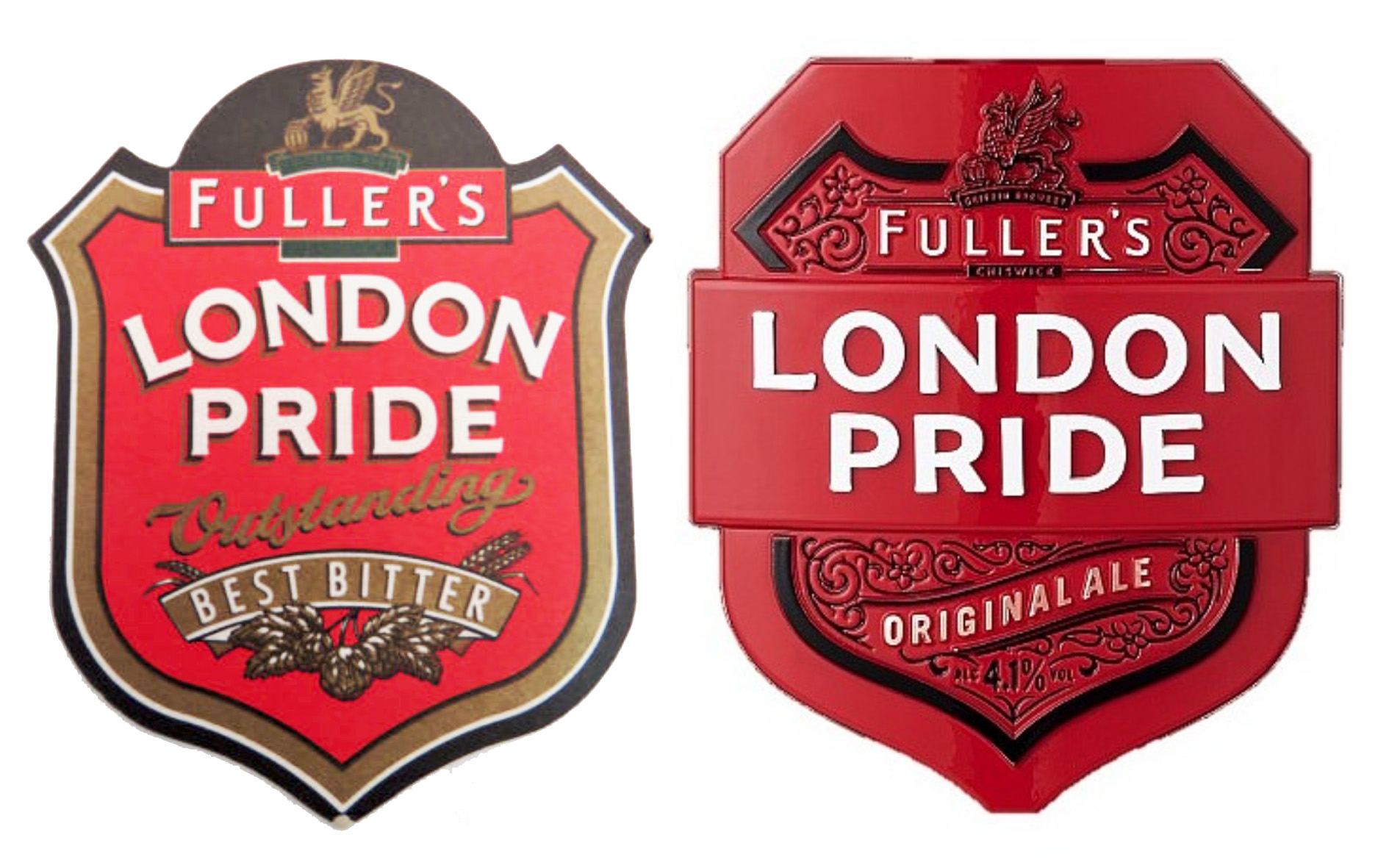 Exactly when it started happening I’m not sure, but bitter, once the glory of the British beer scene, is disappearing. In the place of all those marvellously hoppy, complex bitters and best bitters we once sank by the pottle and quart, we now have brews sold under the same brand names, made by the same breweries, very probably to the same recipes, with the same ingredients – but describing themselves as “amber ales” instead.
Exactly when it started happening I’m not sure, but bitter, once the glory of the British beer scene, is disappearing. In the place of all those marvellously hoppy, complex bitters and best bitters we once sank by the pottle and quart, we now have brews sold under the same brand names, made by the same breweries, very probably to the same recipes, with the same ingredients – but describing themselves as “amber ales” instead.
Take London Pride, for example. Until very recently Fuller’s was delighted to call this classic beer exactly what it was and is, and has been for more than 60 years, since it first appeared on bartops – a best bitter. Now it’s an “original ale”. Let’s stifle the pedantic retort that an “original ale” would be brewed without any hops at all, and merely ask ourselves: WTF?
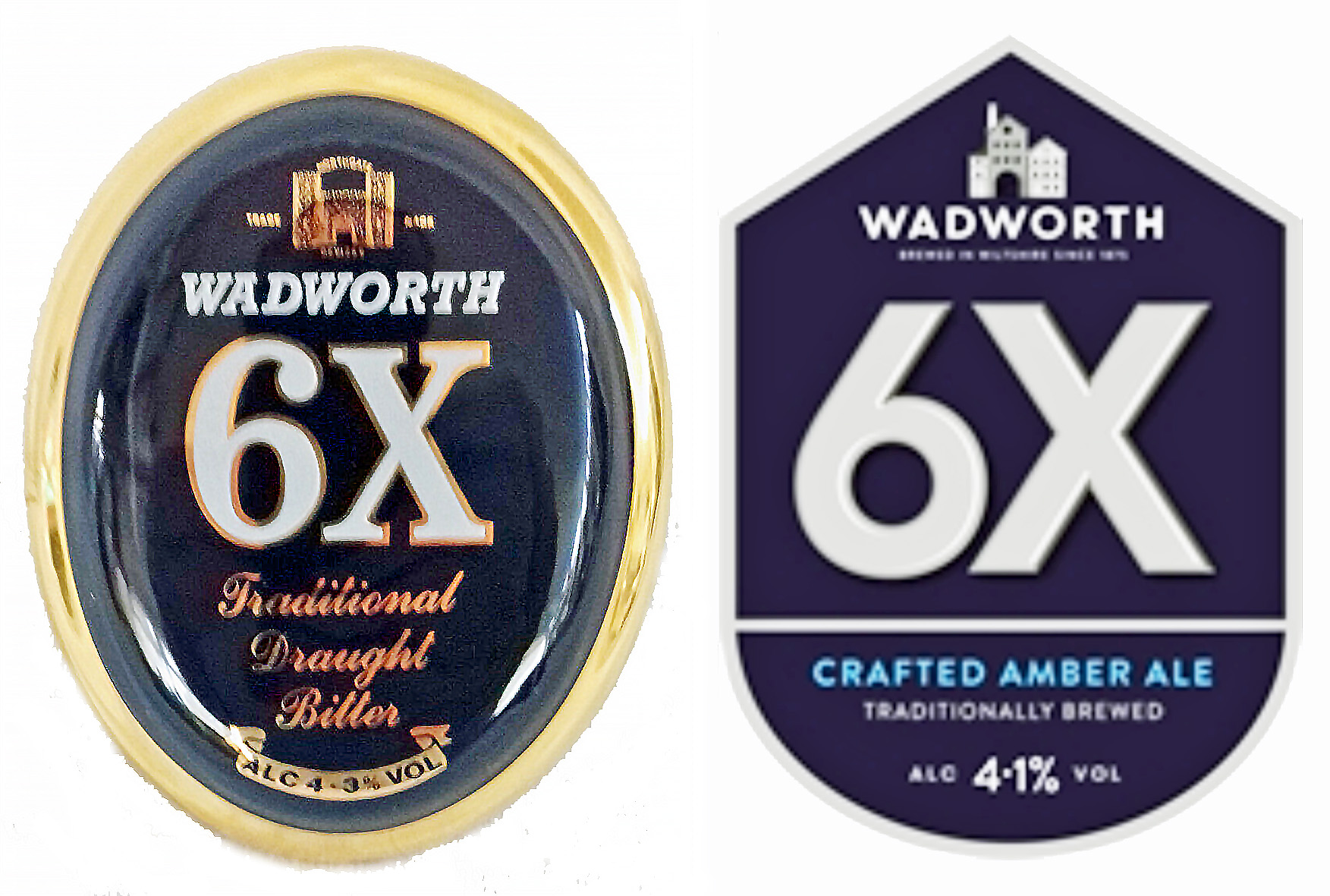 Similarly with Wadworth’s 6X, formerly a “traditional draught bitter”, now a “crafted amber ale”. It would take Jacques Derrida to deconstruct what the word “crafted” is doing in that description, but he’s dead, and since he was French I doubt he drank English beers of any sort anyway, so let’s have a stab ourselves and suggest it’s been stuck in there in an attempt to add some unneeded “authenticity” to a beer that has been around for more than 90 years and needs no help from clueless marketeers.
Similarly with Wadworth’s 6X, formerly a “traditional draught bitter”, now a “crafted amber ale”. It would take Jacques Derrida to deconstruct what the word “crafted” is doing in that description, but he’s dead, and since he was French I doubt he drank English beers of any sort anyway, so let’s have a stab ourselves and suggest it’s been stuck in there in an attempt to add some unneeded “authenticity” to a beer that has been around for more than 90 years and needs no help from clueless marketeers.
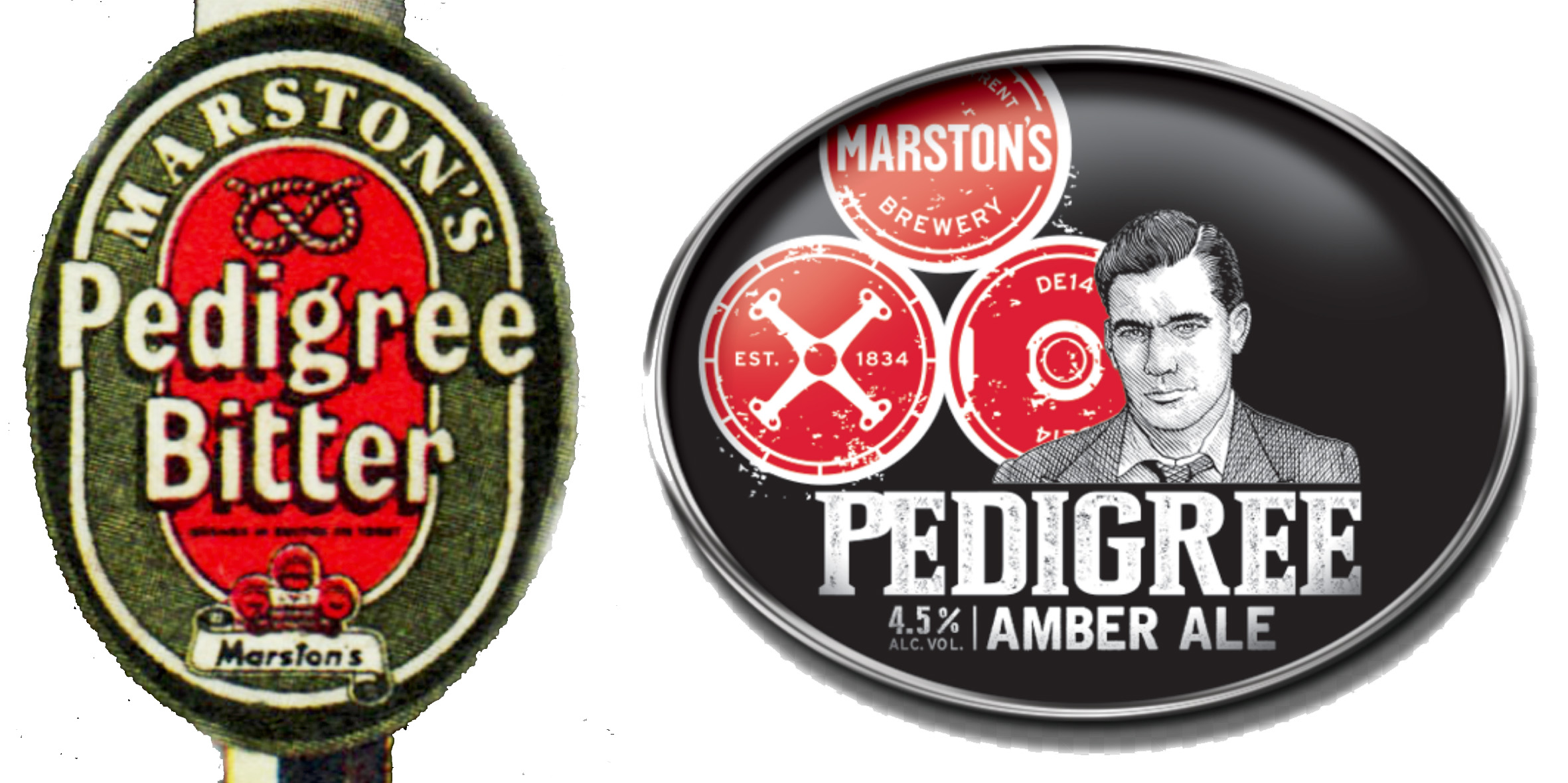 The word “bitter” is disappearing from bartops and bottle labels across the country. Marston’s Pedigree, “The King of Bitters” once, now just another amber ale. Shepherd Neame Spitfire – “premium bitter” when it launched, “Kentish amber ale” today. Hook Norton Brewery’s Hooky bitter – now just “Hooky”, “amber and well-balanced”. Brain’s SA, formerly proud to call itself a best bitter, now just a “premium cask beer”. Arkell’s BBB, which is actually short for “best bitter beer”, is now branded simply as “3B”, with no clue as to where that comes from. Wells’ Bombardier, “English premium bitter” until recently, today a “British hopped amber beer”. Again, WTF? Unless the Scots and Welsh have started growing hops again, and as far as I am aware the last hop gardens in those countries closed in the 19th century, what will be going into Bombardier will be English hops. Is “English” another word, like “bitter”, that cannot now be mentioned in the context of beer marketing?
The word “bitter” is disappearing from bartops and bottle labels across the country. Marston’s Pedigree, “The King of Bitters” once, now just another amber ale. Shepherd Neame Spitfire – “premium bitter” when it launched, “Kentish amber ale” today. Hook Norton Brewery’s Hooky bitter – now just “Hooky”, “amber and well-balanced”. Brain’s SA, formerly proud to call itself a best bitter, now just a “premium cask beer”. Arkell’s BBB, which is actually short for “best bitter beer”, is now branded simply as “3B”, with no clue as to where that comes from. Wells’ Bombardier, “English premium bitter” until recently, today a “British hopped amber beer”. Again, WTF? Unless the Scots and Welsh have started growing hops again, and as far as I am aware the last hop gardens in those countries closed in the 19th century, what will be going into Bombardier will be English hops. Is “English” another word, like “bitter”, that cannot now be mentioned in the context of beer marketing?
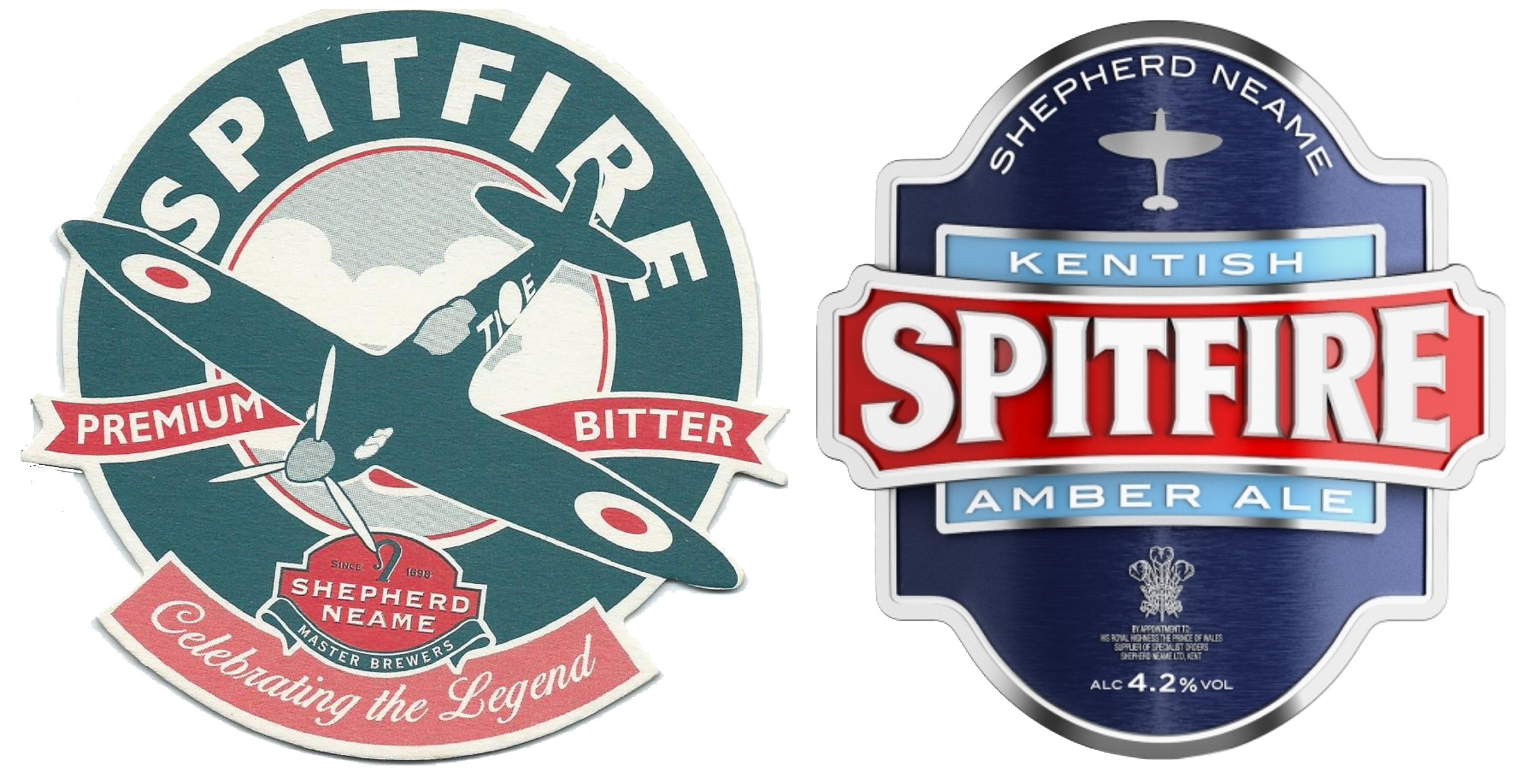
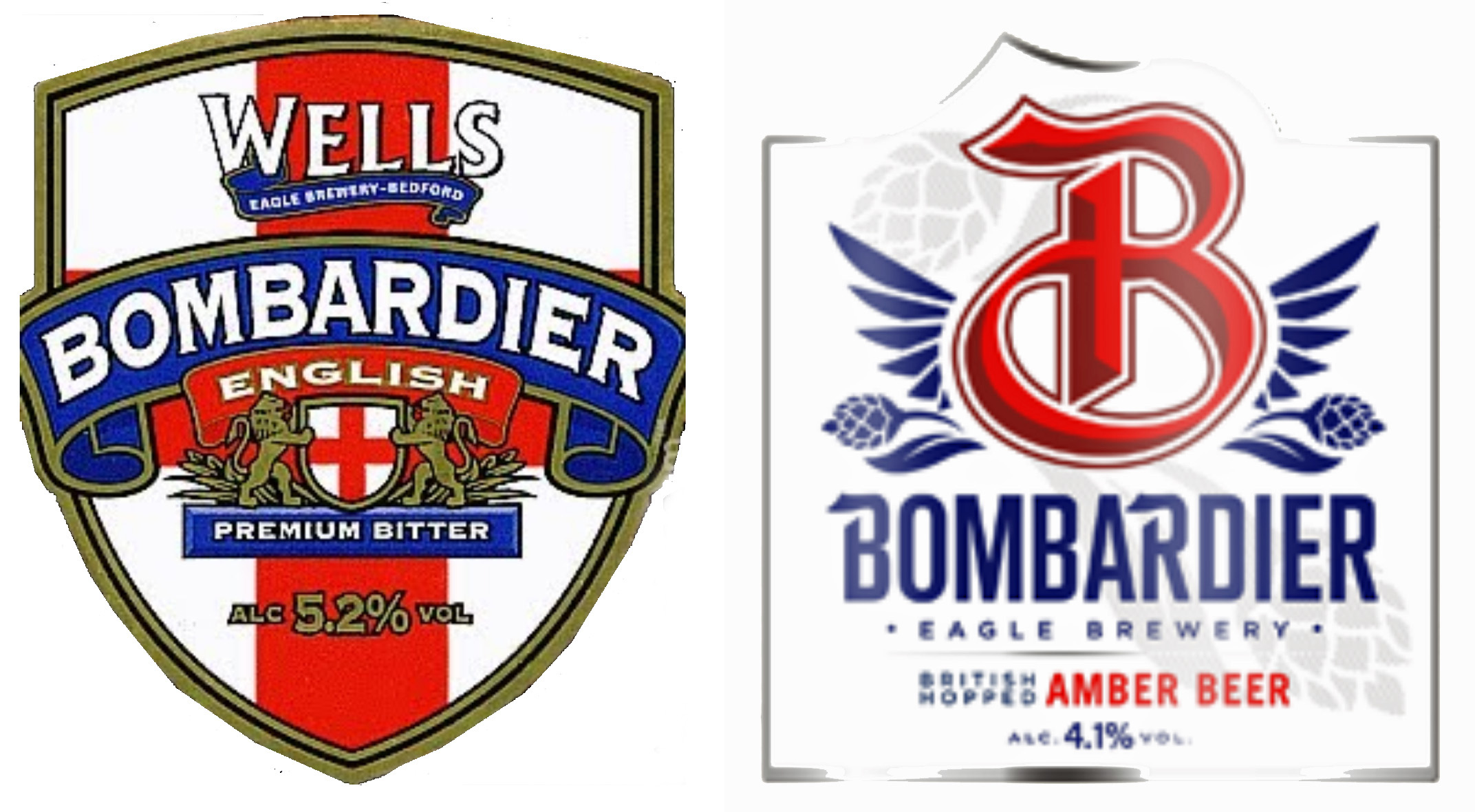 Not all bitters are dark cornelian-amber, of course, particularly those from the North West of England: thus Robinson’s Unicorn Bitter from Stockport is now Robinson’s Unicorn Golden Ale. JW Lees seems to be resisting, but even its bitter, while still proudly branded “Bitter”, is described today on the pumpclips bottle labels as an amber ale (though, while you CAN get amber that pale, that’s not what I’d call “amber-coloured. And incidentally, Lees, that claim on your website that “our all-malt amber bitter was first brewed in 1828” – I doubt that very much. Nobody was brewing well-hopped bitter ales outside London and Burton for decades yet.)
Not all bitters are dark cornelian-amber, of course, particularly those from the North West of England: thus Robinson’s Unicorn Bitter from Stockport is now Robinson’s Unicorn Golden Ale. JW Lees seems to be resisting, but even its bitter, while still proudly branded “Bitter”, is described today on the pumpclips bottle labels as an amber ale (though, while you CAN get amber that pale, that’s not what I’d call “amber-coloured. And incidentally, Lees, that claim on your website that “our all-malt amber bitter was first brewed in 1828” – I doubt that very much. Nobody was brewing well-hopped bitter ales outside London and Burton for decades yet.)
If you think this is just the big guys trying to move their beers away from cloth caps and roll-ups, I’m afraid not. Woodforde’s Wherry bitter, which stunned me when I first drank it more than 35 years ago – today, another amber ale.
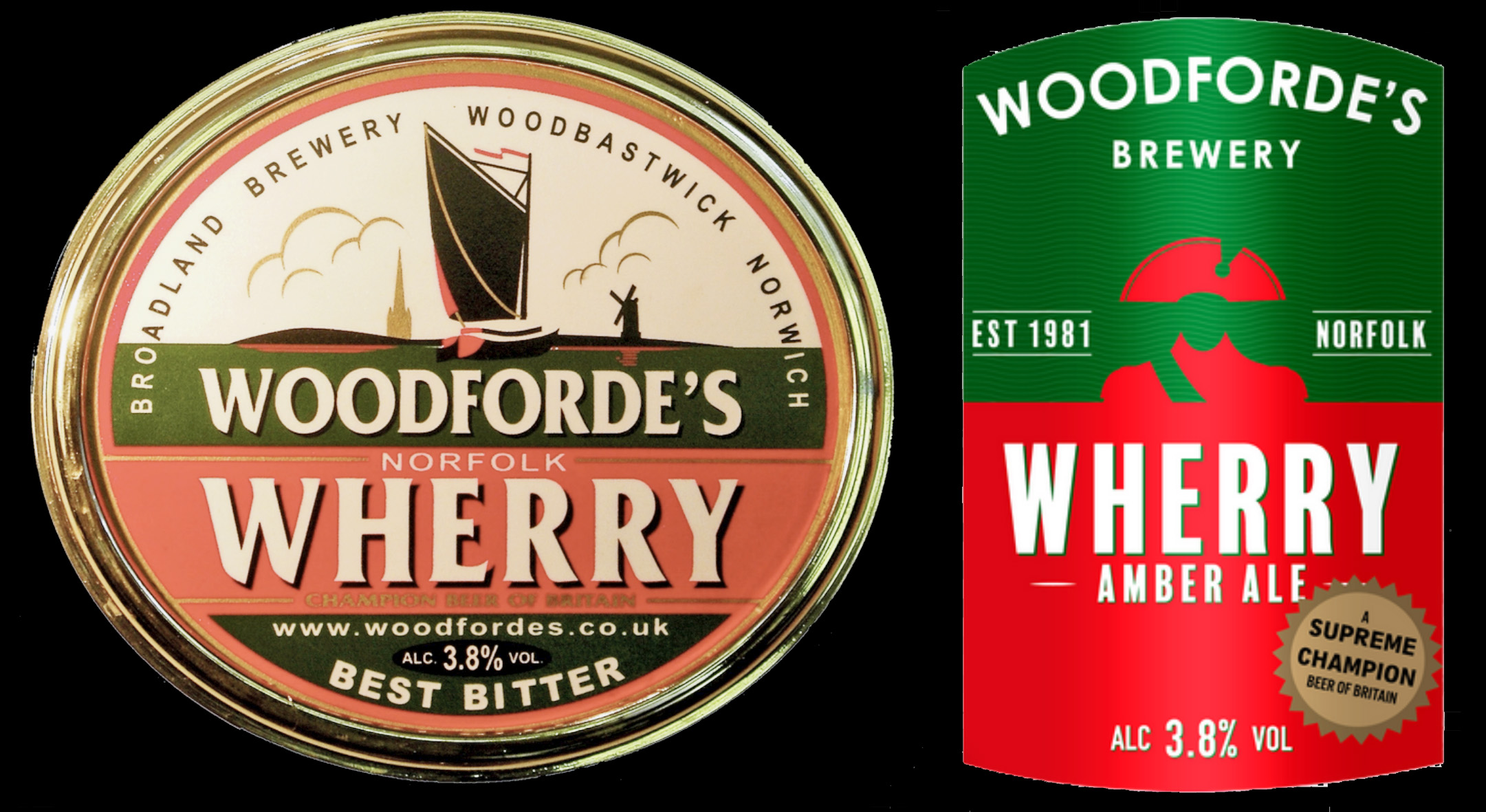 Not everybody is doing it, of course, and it still looks to be only a minority that have ripped the page with “bitter” on out of their dictionaries: there are plenty of brewers, hurrah, large and small, still proud to call their beer a bitter, a best bitter, even an extra special bitter. But it worries me that some brewery marketing departments seem to think “bitter” is a dirty word, and the way to sell a classic, traditional English product is to call it an “amber ale” instead. It’s dumb, it’s dumbing down, and it’s insulting to the beers and to drinkers, suggesting that they would skitter away from a word that they might associate with their granddad, and refuse to drink something called a bitter lest they sprout a fuzzy grey beard and their Converse sneakers turn into sandals.
Not everybody is doing it, of course, and it still looks to be only a minority that have ripped the page with “bitter” on out of their dictionaries: there are plenty of brewers, hurrah, large and small, still proud to call their beer a bitter, a best bitter, even an extra special bitter. But it worries me that some brewery marketing departments seem to think “bitter” is a dirty word, and the way to sell a classic, traditional English product is to call it an “amber ale” instead. It’s dumb, it’s dumbing down, and it’s insulting to the beers and to drinkers, suggesting that they would skitter away from a word that they might associate with their granddad, and refuse to drink something called a bitter lest they sprout a fuzzy grey beard and their Converse sneakers turn into sandals.


I suspect it’s as much the negative sensory connotations of the word “bitter” as the fashion ones. It’s not just in England: Hövels Original Bitterbier had its old-timey label rearranged to merely “Hövels Original” around 2007.
Timothy Taylors Best Bitter became Boltmaker and well before that their Bitter Ale became Golden Best.
GB is (was) a light mild, surely?
Yes, but it was originally called Bitter Ale.
And yet “sours” are trumpeted with pride by many brewers today. Not sure it’s a reaction to a perceived squeamishness of the public as much as an attempt to get at the visual look, the colour of most bitter today, to distinguish it in the market.
Amber as an adjective seems to go in and out over the centuries, I’m pretty sure Combrune talks of “pale or amber” beer (or ale, this from memory).
Finally, in a sense the term bitter’s reign on bottles and cans was kind of short, with pale ale being more the traditional moniker and the other term (as you know) more a cant of the pub, so the pendulum is swinging back I think but to the amber variation given the coppery cast of today’s pint of bitter.
Maybe its something to do with the sweet tooth many of us have turned to over the last few decades? I think the marketing departments are maybe trying to get woman to drink their Amber Ale and it might be easier to sell over the word bitter. Wrong I know but just my two pence worth.
I‘d guess the term amber gives you more freedom in the recipe. Reducing the most expensive ingredient, the hops I mean, can be done without jeopardizing the name. As long as the colour of the beer is somewhat amber-ish.
Getting the word “bitter” past an American audience is a nightmare, for which I place the blame fairly and squarely at Coors and their “bitter face” campaign trumpeting the, ahem, glories of Keystone Light.
When I designed the recipe for Bitter 42, originally Session 42 (but that’s a different threatened lawsuit), for Three Notch’d Brewing here in Virginia, we had to call it an English Pale Ale to get people to try it, and we’ll likely change the Bitter 42 name next time it is brewed because people won’t try it, but credit to them for trying to buck the trend.
When people do actually try it, they discover that they like sessionable beers with a hefty hop bite, go figure eh?
Alistair,
I can vouch for this issue. When I started selling homebrew supplies in the late ’70’s in Texas, we stocked a little 1 kg. tin of John Bull Bitter. Could hardly give it away. A few years later, they re-released the same product in a larger 1.5 kg. tin, with a new label, and, most importantly, a new name: John Bull Amber Hopped Malt Extract. It flew off the shelves! “A rose by any other name . . .” Of course, most Americans don’t know what a proper “bitter” is supposed to taste like. They’re simply turned off by the name. On the other hand, Brits have drinking bitter for donkeys years. I suspect your average bitter drinker has no issue with the name, but the trick is to win over new drinkers. I guess if a different name gets more people drinking our favorite beverage, it’s not such a bad thing. Too bad it takes a re-branding to work, however.
so what do Americans believe coffee tastes like then ? or do they add so much sugar & cream it totally hides the bitterness.
weirdly whether its just psychological because of the naming implies amberness, not bitterness, I would have said all those examples taste less bitter now than I remember them once being, but as you say it could be down to recipe changing to widen their appeal.
But surely we must be beyond the point of stuff being labelled “old mans drink” anymore, we are now in an age where people born in the 21st century (proper) can legally drink in pubs and the old men to them are drinking generic lager/ lager adjuncts thesedays.
Adnams still make a bitter and call it a bitter, though they try to lessen the impact by calling it Southwold bitter but with the bitter in a much smaller font, still sells though, and weirdly when it was just bitter, it was just known as Adnams, it was Adnams, never bitter, so it always feels clunkier being forced to ask for a Southwold bitter now.
I understand your push-back on the renaming of the beers. To me, however, the real question is, “Are the beers really the same?” If they are, then I have fewer misgivings about the re-branding. When they start reformulating the recipes because of the perceived negative images associated with “bitter,” then I would have major issues! However, if you’re the brewer and you can pick up an extra 10 – 15 % in sales simply by renaming a product”amber ale” or “traditional ale,” without messing with the formulation & procedures, then I would find it very tempting, indeed! You’re growing the market. (or at least you’re growing your market!). That’s the way it looks to me.
Marketeers, what a shower! Can’t get anything right.
In another context I’ve been arguing in favour of Amber – Amber wines. These are the ultra traditional skin contact wines made from white grapes. However, the marketeers have decided in favour of orange. Yes Orange Wines, you couldn’t make it up!
Precisely the same thing happened with mild. Sadly, the marketers are right: they will sell better badged as amber ale, and until you can convince young people, or people in general, not to be such slaves to peer pressure, such dumbing down will continue.
McMullen’s AK used to be called a mild, then became a bitter, now is just a “cask conditioned ale”.
At one point – and I have a pumpclip to prove it – McMulen’s AK was called a “mild bitter”.
Hi Martin,
Just call me an old cynic but its not just bitter and English that come under attack and imho it is indicative of weak brand managers /marketeers who are trying to make a name for themselves by a re-branding, never having learnt the basic premise, if it ain’t broke don’t try to fix it.
However having said this what may be a much bigger concern would be to discover that all the re-branding was in response to significant loss of market share by the brands stated in your article?
Cheers, Keep up the great blog!
Bloody good write-up.
I had no idea at all that the idiots in beer marketing, a filthy bloody word if ever there was one, as something as wonderful as traditional British beer shouldn’t need marketing, were creating a new and more warped than ever reality for beer classification.
If what they want is to chase the “draft beer quid”, then surely they would be better off creating an off-shoot range of beers with “craft beer connotations” in their silly names and descriptions. I am not a hater of “craft beer”, but am however bewildered but he impression that some people believe that tradition and innovation cannot ever exist side-by-side.
Outcast as I am in Oregon (where there are thankfully now many good brews) the words mean a lot to the marketing people and fads rule the day (or week). In the Pacific North West only one brewery that I know of has brewed a Best Bitter – (Matchless) it’s fairly good and overpriced.
As for ESBs – there were several attempts over the years – the only one that stood out was ‘New School ESB’ by Old Schoolhouse Brewery.
Bitter – forget it – they’ve replaced it in the lexicon with ‘hoppy’ as in “not too hoppy” or “full of hops” which is dumb – as hops can all manner of attributes – bitterness being just one of them…
The irony here is that “Amber” is about a fashionable here as “Mild” is in the UK – so if they are hoping to appeal to a US market they will fail.
Thankfully we can be confident that Sam Smiths won’t be rebranding their Old Brewery Bitter, Best Bitter and Sovereign Bitter.
Funnily enough I went down to the pub after reading your piece and sure enough there was a pint on called “Bitter Revival” from Beer Monkey Brew Co.
https://beermonkeybrewco.com/beers/bitter-revival/
Not that this proves anything either way.
I’d say it’s more a case of the cultural connotations than the flavour profile. Bitter has gone the same way as Mild in being perceived as an old man’s drink.
You’ll still very much get a pint of Bitter in a Holt’s pub, though, as with Sam’s.
I would suggest that the use of “crafted” in the description is a clue that it’s in an effort to place themselves along side the modern style of Craft Ales, and, as much of the “craft” in some craft ales seems to be seeing just how many unusual hops you can cram in, perhaps the traditional bitter makers felt that, as drinkers were buying their ales for their more rounded, full bodied flavour, amber ale, with the colour referencing the malts, was a safer description.
As far as Bombardier loosing the English hops in favour of British ones, I suspect, looking at the complete label redesign, that they were finding the visual associations with English nationalist organisations was affecting their sales, and that using British gave them the national pride angle without the possible far right connotations.
Isn’t the aim to sell the beer that the brewery makes? And if rebranding results in more sales and a stronger market for traditional cask ales then I am willing to accept that state of affairs.
Look again at a number of those pump clips. Rebrand often means lower abv, charged at the same price. I blame Rupert.
Didn’t bitter in bottles used to be called ‘brown ale’ another term that has dropped by the wayside apart from the obvious Geordie/Dutch brew. Newcastle Brown droppes the ‘Ale’ a few years ago as the word was at that time percevied to be old fashioned. It came back when they realised there had been no change in sales.
No, “pale ale”, or “light ale” – certaimly “light ale” has now disappeared, unless Courage Light is still being brewed anywhere for the last fading customer base of over-70-year-olds …
Martyn,
Regarding “At one point – and I have a pumpclip to prove it – McMulen’s AK was called a ‘mild bitter’ ” Now, here’s an example where rebranding this beer as an “amber mild” would be beneficial. There is nothing “bitter” about McMullen’s AK. Yeah, it looks like a bitter (amber hue), but the hops are barely (barley?) discernible. “Amber Mild” would be an accurate description of the beer (as opposed to a more traditional “dark mild”). BTW my wife is from Hertford!
[…] has written an excellent post on an unexcellent thing… the disappearance of the word “bitter” from the English […]
[…] When Did ‘bitter’ Become The Beer Style That Dare Not Speak Its Name? […]
[…] – What happened to calling a beer bitter? […]
London’s Five Points is bucking the trend and introducing a cask Best Bitter. https://fivepointsbrewing.co.uk/beer-at-its-best/
I think the origins of the decline in the use of the term bitter can be traced back to the break up of the tied house system and the demand from Camra for more choice of beers. This choice usually meant a choice of bitter beers. So when you went into a pub with an array of pump clips all serving bitter, the tendency crept in for customers to ask for the beer by name, rather than style. Otherwise, how would the bar staff know what to serve, if you only asked for bitter? I can remember drinking in Hull in the early 70’s where there were just two choices of real ale – mild or bitter. Later on in that decade, starting in London, some pubs almost became mini-beer festivals. Compounded by the decline in mild, the beers on offer were almost invariably bitters, with the occasional strong or dark ale (eg Old Peculier).
Therefore it was the brewery and/or the beer’s name that became associated with the drink, not the style. Consequently, it made sense for the largest lettering on the pump clip to be these identifiers, not the fact that it was a bitter. This meant it was only a small step to replace ‘bitter’ with some other description, like amber ale. So it’s all Camra’s fault!
Everything can be CAMRA’s fault if you think about it hard enough.
Even CAMRA is CAMRA’s fault. They don’t even recognise centuries old IPA. And while there was a dabbling with re-categorisation in the 1990s, and the invention of a style called “Golden”, amazingly, they still recognise only 9 types of beer in the UK, with anything not fitting into their strict regime being labelled “Speciality”, or thrown out of their competitions. So the best sours, saisons, and coffee porters compete with each other before being considered in the latter stages of their champion beer. I know of one competition where an excellent IPA was thrown out because it wasn’t a “in category” – heck, THAT could have been a champion beer of Britain…..!
Martyn, I simply despair at this. I really don’t understand how this has happened. Bitter is and has always been a stalwart of proper English beers, but it seems due to someone/thing denoting “Bitter” as an offensive word. We’re losing our heritage here and in my opinion it is due to incorrect and false marketing by those who cannot produce a decent drinkable best bitter. A beer on the darker side of Amber, with a decent malt hop balance that lingers on the tongue, that you can drink pint after pint is a best bitter. Anything that contains non English hops is not to style. Ask Miles Jenner, he’ll back me up.
Whilst I sympathise with the traditionalist feeling, it is wrong to turn one’s back on innovation. All traditional styles have to start somewhere.
Hops case in point. Arguably there is no such thing as a native English hop. Yes great to have a well hopped Bitter, important that fresh whole hops are used rather than extracts and pellets… But England has only a handful of its “own” hops and even these are relatively recent imports. As I understand it our hops came from the Netherlands and these hops came from Bohemia and ultimately these came from the Caucasus (as did the wine grape).
I would love to taste a British Ale flavoured with wild Georgian hops!